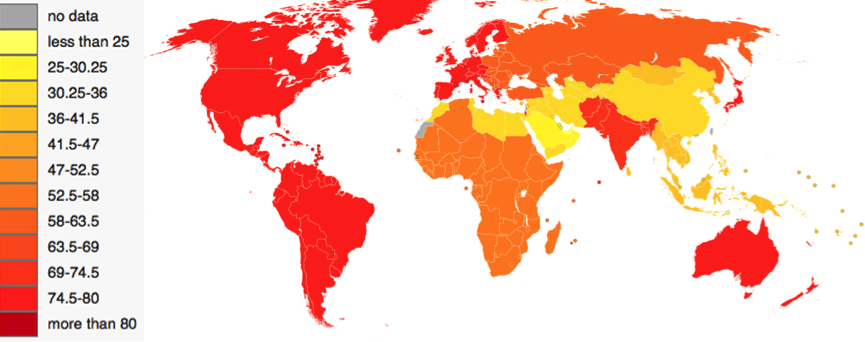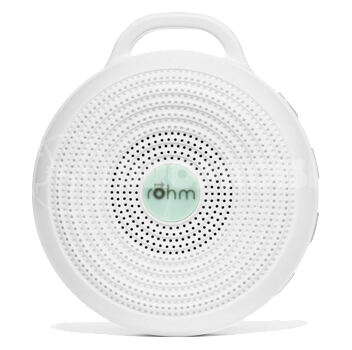What is Insomnia?
Do you have much difficulty getting to sleep no matter how tired you are? Or do you awake in the middle of the night and spent hours tossing and turning on bed unable to fall asleep for hours? If you do, chances are, you are suffering insomnia, also known as sleeplessness.
Insomnia is the difficulty in getting the amount of sleep you need to get to feel rested and refreshed when you wake up. Insomnia is not defined by the number of hours you sleep or how quickly you fallen asleep. It is defined by the quality of your sleep as well as how refreshed you feel after the sleep. A person who sleep eight hours and yet feel drowsy and fatigued in the day may be experiencing insomnia as well.
You may be suffering insomnia if you are experiencing the followings:
- Difficulty in falling asleep
- Unable to get back to sleep upon awaken in the night
- Feel tired after sleep
- Rely on sleeping pills and/or alcohol to fall asleep
- Inability to concentrate in the day
Insomnia can be characterised as Acute Insomnia or Chronic Insomnia. Acute insomnia last for a brief duration and often happens due to life circumstances such as exam, bad news, etc. Many individuals have probably experienced it at least once in their lifetime. Such insomnia often does not require any treatment.
Chronic insomnia occurs when one experienced sleepless that occurs at least over three nights per week that last more than three months. Chronic insomnia can be a result of unhealthy sleep habits, irregular work hours, medications, prolonged effects from environment that is not conducive for rest and more. Chronic insomnia requires treatment as it can be comorbid.
Statistics on Insomnia
Insomnia is common amongst adults. According to a new study (2016) in the Centers for Disease Control and Prevention’s (CDC) Mobidity and Mortality Weekly Report, more than a third of American adults are not getting enough sleep on a regular basis. In a publication by Statistic Brain on October 2016, 40 million of people in the U.S. is said to have chronic sleep disorder, and the number is growing every day. A 2014 study by Jawbone shows that Singapore is among cities in the world with the least hours of sleep at an average of 6 hours and 32 minutes a day.

World Insomnia Map (Source: Vector map from BlankMap-World6, compact.svg by Canuckguy et al)
How Insomnia Affects You?
Insomnia results in daytime sleepiness, fatigue and cognitive impairement. Disabilities in learning among children, as well as cognitive and memory problems in adults that impaired them in performing daily tasks have been linked to excessive sleepiness. Insomnia individuals scored significantly lower on the Medical Outcomes Study Cognitive Scale and experience problems with concentration, memory, reasoning and problem solving. A study by Breslau and associates identified individuals with insomnia were nearly 4 times more likely to suffer major depression than those without insomnia. They were also found to be of higher risk for anxiety disorder and substance abuses.
Lack of sleep introduce attention deficiency, slows your reaction time and cognitive processing thereby making a drowsy driver as dangerous as a drunk driver. A large-scale study by researchers in Norway over a 14-year period found insomnia to be a significant factor in accidental fatal injuries.
Insomnia has also been found to result in multiple health problems in many major studies. Studies found that sleep loss may have wide-ranging effects on the human endocrine, immune, cardiovascular and nervous systems. Sleep deprivation can also cause obesity in adults and children.
Numerous studies over the years have also establised that insomnia can dramatically impair skin function and integrity, thereby resulting in skin aging. The formation of Collagen (i.e. one of our skin’s primary componenets for a healthy elasticity and youthful appearance) can be dramatically disrupted by sleep deficiency.
Treatment Methods for Insomnia
Treatment of insomnia depend largely upon on the specific sleep problem. There are three possible treatment approaches.
Cognitive-Behavorial Therapy (CBT)
CBT is a short-term combinational pyschotherapy and behavioral therapy treatment that targets the thoughts and actions that disrupt sleep. In dealing with insomnia, CBT encourages good sleep habits and employ multiple methods to relieve sleep anxiety. The advantage of CBT is the short duration of treatment required, usually on a weekly basis over 2 to 3 months with a therapist.
Medications
Medication for insomnia are classified into prescription medicine and over-the-counter products. Your insomnia symptoms and health conditions determine which medication may be right for you. Its important to seek a consultation with a doctor before taking a sleep aid.
Improve Sleeping Habits and Conditions
Create and adopt a bedtime routine. Keep to the routine throughout the week (including weekends) and avoid consuming any stimulants, alcohols or medicines that can disrupt your sleep.
Exercise on a regular basis and at least 5 to 6 hours before going to bed. Avoid drinking too much or take heavy meal before bedtime.
Set up a comfortable sleeping area and remove any distractions that could possibly disrupt your sleep. If your neighbourhood is noisy, put in place items or devices that can mask out surrounding noises to help you get to sleep easier and faster (such as *white noise machines and earplugs).

Marpac Rohm (Ideal for Frequent Traveller)

Marpac Dohm (Official Sound Conditioner of National Sleep Foundation)
*Read more on how white noise machine is able to help you sleep better here.
Facts about Insomnia
- It isn’t age specific.
- Women is twice likely to be affected as compared to men.
- Pets and pests can get insomnia as well.
- Individuals with insomnia are more likely to commit in substance abuse.
- Insomnia individuals have higher risk of strokes, arteriosclerosis, obesity, diabetes, hypertension and depressions.
- It is the most prevalent amongst all sleep disorders.
- Insomnia can be caused by nasal/sinus allergies, reflux, hyperthyroidism, arthritis, asthma, Parkinson’s disease, chronic pain, low back pain
- Insomnia can lead to obesity and multiple health problems
- Accident injuries could result in insomnia
URLs
- https://sleepfoundation.org/insomnia/content/what-is-insomnia
- http://www.cdc.gov/media/releases/2016/p0215-enough-sleep.html
- http://www.statisticbrain.com/sleeping-disorder-statistics/
- http://www.straitstimes.com/singapore/health/singapore-among-cities-in-the-world-with-least-hours-of-sleep-study
- http://www.straitstimes.com/singapore/many-parents-not-alert-to-childs-lack-of-sleep-study
- http://www.huffingtonpost.com/dr-michael-j-breus/insomnia-could-kill-you-by-accident_b_7235264.html
- https://www.ncbi.nlm.nih.gov/books/NBK19961/
- http://www.lifeextension.com/magazine/2011/4/how-chronic-insomnia-destroys-skin-health/page-01


